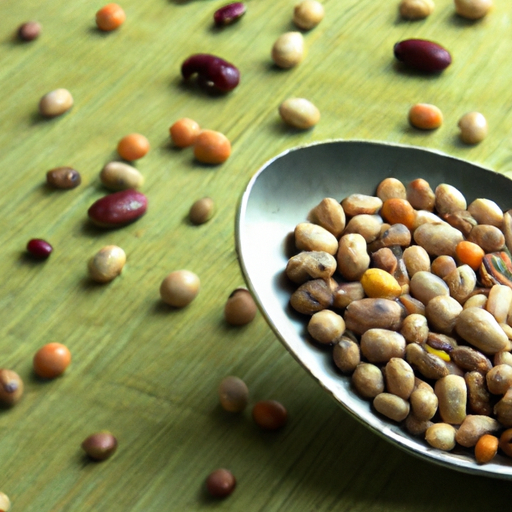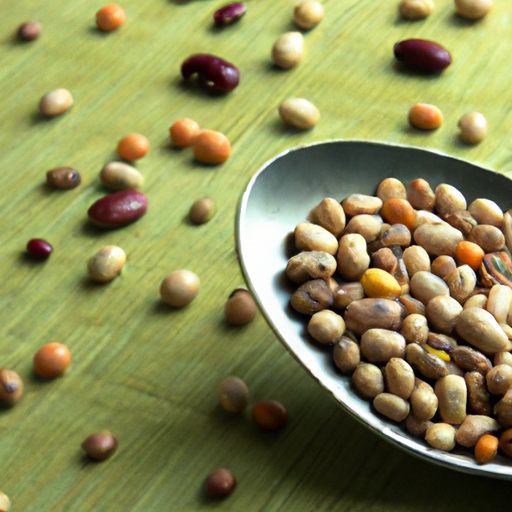So, you’ve decided to give vegetarianism a try or maybe you’re just looking to incorporate more plant-based protein into your diet. Either way, you’re probably wondering what are some examples of vegetarian protein sources? Well, you’re in luck because there are actually plenty of options out there!
One of the most well-known vegetarian protein sources is tofu. This versatile soy-based product is a staple in many vegetarian and vegan diets. It’s high in protein and can be prepared in a variety of ways, making it perfect for adding to stir-fries, soups, and even as a meat substitute in dishes like tacos or burgers.
Another great option is legumes, such as lentils, chickpeas, and black beans. These little powerhouses are not only packed with protein but also high in fiber and other essential nutrients. You can use them in salads, stews, or even make veggie burgers out of them. The possibilities are endless!
And let’s not forget about nuts and seeds. These little guys are not only delicious but also loaded with protein. Almonds, cashews, chia seeds, and hemp seeds are just a few examples of vegetarian protein sources that can be easily incorporated into your meals or snacking routine.
In this article, we’ll delve deeper into the world of vegetarian protein sources and explore some more options to help you meet your protein needs without relying on meat. So, whether you’re a vegetarian, a vegan, or simply someone looking to diversify their protein sources, keep reading to learn more!

Introduction
In today’s fast-paced world, the importance of maintaining a healthy and balanced diet cannot be stressed enough. One crucial component of a well-rounded diet is protein. Proteins are essential for the growth, repair, and maintenance of our body’s tissues. They play a vital role in strengthening our immune system, regulating our hormones, and supporting muscle development. While meat is often perceived as the primary source of protein, it is important to note that there are numerous vegetarian options available that are equally rich in this vital nutrient. In this article, we will explore some of the most popular vegetarian protein sources, their nutritional benefits, and how you can incorporate them into your diet.
Legumes
Legumes are a diverse group of plants that include beans, lentils, and chickpeas. They are known for their high protein content, making them an excellent choice for vegetarians. Beans, in particular, are a staple in many vegetarian diets and are widely available in various forms such as black beans, kidney beans, and pinto beans. They can be used in soups, salads, or as a filling for tacos and burritos, providing a substantial amount of protein along with dietary fiber.
Lentils are another versatile legume that deserves a place on your plate. These tiny legumes come in a variety of colors, including green, red, and black, each offering its own unique flavor and taste. Lentils can be cooked and used as a base for soups, stews, or even as a substitute for ground meat in vegetarian patties.
Chickpeas, also known as garbanzo beans, are a nutrient-dense legume widely used in Mediterranean and Middle Eastern cuisines. They are incredibly versatile and can be roasted, boiled, or ground into flour. Chickpeas are a rich source of protein, fiber, and essential minerals, making them an excellent addition to salads, hummus, and curries.
Nuts and Seeds
Nuts and seeds are not only known for their crunchy texture but also for their nutritional value, including their protein content. Almonds, in particular, are considered a powerhouse of protein, with approximately 6 grams of protein per ounce. They are also packed with healthy fats, fiber, and vitamins, making them a convenient and nutritious snack option.
Hemp seeds, derived from the Cannabis sativa plant, are gaining popularity as a superfood due to their impressive nutritional profile. They are rich in protein, containing all nine essential amino acids. In addition to protein, hemp seeds are a great source of omega-3 fatty acids, which are beneficial for heart health. They can be added to smoothies, salads, or used as a topping for yogurt or oatmeal.
Chia seeds have been consumed for centuries and are known for their abundance of omega-3 fatty acids, fiber, and antioxidants. They are also an excellent source of plant-based protein, providing approximately 4 grams of protein per ounce. Chia seeds can be soaked in water or plant-based milk to create a gel-like consistency, which can be used as a base for puddings or as an egg substitute in baking.
Grains
Quinoa has emerged as a popular grain among health-conscious individuals due to its status as a complete protein source. Unlike most plant-based protein sources, which lack one or more essential amino acids, quinoa contains all nine essential amino acids in adequate amounts. This makes it an ideal protein source for vegetarians and vegans. Quinoa can be cooked and used as a base for salads, side dishes, or even as a substitute for rice.
Amaranth, a gluten-free grain native to South America, is often overlooked but packs a significant amount of protein. It is rich in lysine, an essential amino acid that is limited in most grains. Amaranth can be cooked and used as a side dish or added to soups and stews for added protein and nutrition.
Whole wheat, commonly found in bread, pasta, and cereals, is another great source of plant-based protein. Opting for whole wheat varieties ensures that you retain the maximum nutritional benefits, including protein, fiber, and various other vitamins and minerals.
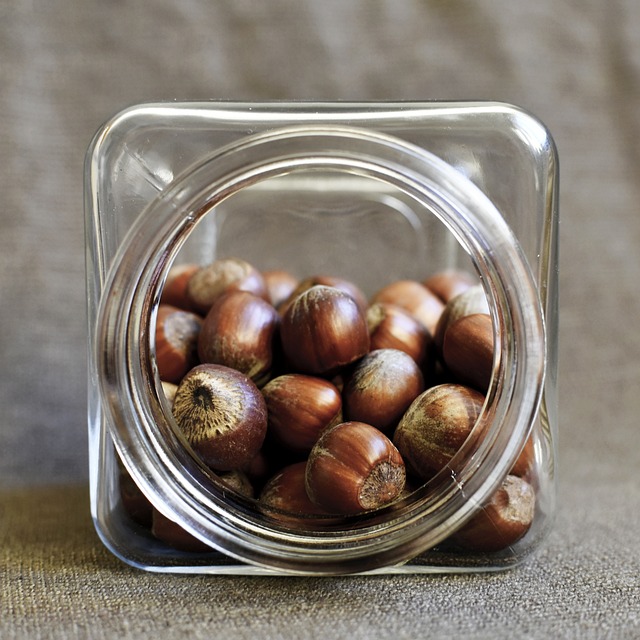
Vegetables
When we think of protein, vegetables may not be the first food group that comes to mind. However, some vegetables do contain notable amounts of protein. Spinach, for example, is not only rich in iron and vitamins but also contains approximately 3 grams of protein per cup. Incorporating spinach into salads, smoothies, or sautéed dishes can help boost your protein intake.
Broccoli, a cruciferous vegetable famous for its various health benefits, is also a surprising source of protein. One cup of chopped broccoli contains roughly 2.5 grams of protein. It can be steamed, roasted, or stir-fried to retain its nutritional value and add a protein-packed side dish to your meal.
Peas, although small in size, are a significant source of protein. Green peas, in particular, contain approximately 8 grams of protein per cup, making them an excellent choice for vegetarians. Peas can be boiled, sautéed, or added to soups and stews to enhance both flavor and nutritional value.
Plant-Based Meat Alternatives
If you’re looking to replicate the taste and texture of meat while still maintaining a vegetarian diet, plant-based meat alternatives are worth considering. Tofu, a soy-based product, is widely considered a versatile protein option and a staple in many vegetarian and vegan diets. Tofu can be marinated, baked, stir-fried, or grilled, allowing for endless culinary possibilities.
Tempeh, a fermented soybean product, packs a powerful protein punch. In addition to protein, tempeh contains probiotics and is rich in vitamins and minerals. Its nutty flavor and firm texture make it an excellent substitute for meat in dishes such as stir-fries, burgers, and stews.
Seitan, also known as wheat meat, is made from gluten, the protein found in wheat. It has a texture similar to meat and is an excellent source of protein, containing approximately 25 grams per 3.5 ounces. Seitan can be grilled, sautéed, or used as a filling for sandwiches and wraps.
Beyond Meat and other similar brands have gained popularity in recent years by providing realistic meat substitutes that are entirely plant-based. Beyond Meat burgers and sausages are made from a combination of plant proteins, providing a comparable taste and texture to traditional meat products.
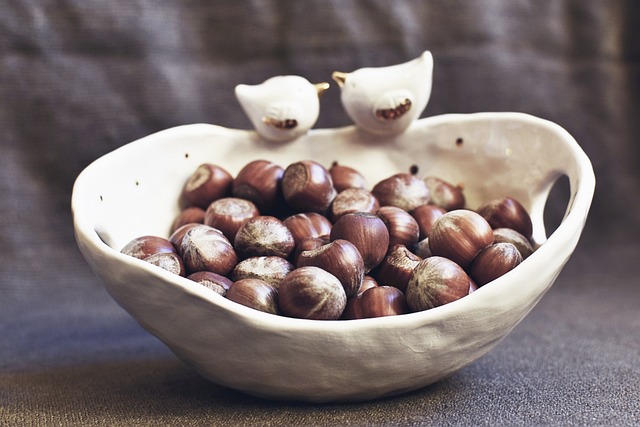
Dairy and Eggs
Dairy products and eggs are another category of vegetarian protein sources. They are rich in protein and essential nutrients. However, it is important to note that not all vegetarians consume dairy or eggs due to personal dietary choices or allergies.
Dairy products such as milk, cheese, and yogurt are known for their high protein content. Milk contains approximately 8 grams of protein per cup, while cheese can provide around 6 grams of protein per ounce. Yogurt, whether dairy-based or plant-based, is also an excellent source of protein, offering roughly 6 grams per 6-ounce serving.
Eggs are often referred to as a complete protein source as they contain all nine essential amino acids. With approximately 6 grams of protein per large egg, they are a popular choice among vegetarians. Eggs can be boiled, scrambled, or used in various baking recipes, providing both protein and flavor.
Soy Products
Soybeans, a legume native to East Asia, are an excellent source of plant-based protein. They are widely used in various forms such as tofu, tempeh, and soy milk. Soybeans contain approximately 36 grams of protein per cup, making them a nutrient-dense option for vegetarians. Incorporating soybeans and soy-based products into your diet can provide a well-rounded protein intake.
Soy milk, derived from soybeans, is a popular dairy alternative for those following a vegetarian or vegan diet. It offers a similar protein content to cow’s milk, making it a suitable substitute. In addition to being a source of protein, soy milk is also rich in calcium and fortified with various vitamins and minerals.
Tofu, made from soybean curds, is a versatile protein option that can be used in a multitude of dishes. It absorbs flavors easily and can be grilled, stir-fried, or blended into smoothies. Tofu is an excellent source of protein, with approximately 20 grams per 3.5 ounces.
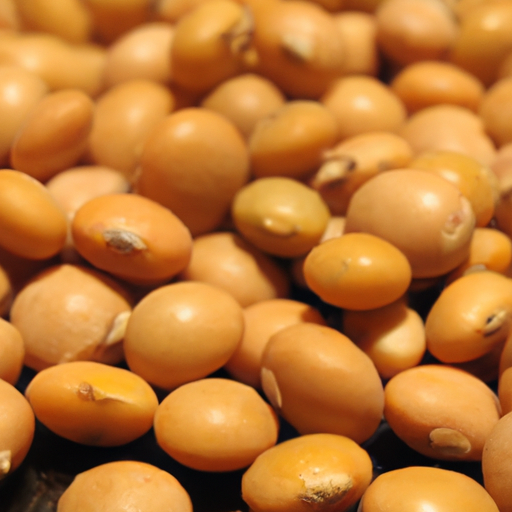
Other Vegetarian Protein Sources
Nutritional yeast is a deactivated yeast often used as a cheese substitute due to its savory, cheesy flavor. It is also a significant source of protein, providing approximately 14 grams per ounce. Nutritional yeast can be sprinkled on popcorn, added to pasta dishes, or used as a seasoning in various recipes.
Spirulina, a type of blue-green algae, is known for its high protein content and various other nutritional benefits. It is commonly consumed in powdered or tablet form, making it easy to incorporate into smoothies, energy bars, or baked goods. Spirulina offers roughly 8 grams of protein per tablespoon.
Mycoprotein, derived from a type of fungus called Fusarium venenatum, is a unique vegetarian protein source. It is commonly marketed under the brand name Quorn and is available in various forms such as patties, nuggets, and sausages. Mycoprotein is low in fat and a good source of fiber while providing around 13 grams of protein per 3.5 ounces.
Conclusion
In conclusion, there is a wide range of vegetarian protein sources available to suit every palate and dietary preference. From legumes and nuts to grains and vegetables, there are countless options for those looking to meet their protein needs without consuming meat. Plant-based meat alternatives, dairy products, eggs, soy products, and other unique vegetarian protein sources offer versatile and nutritious alternatives. Incorporating these protein-rich foods into your diet can help ensure that you meet your nutritional needs while enjoying a balanced and fulfilling vegetarian lifestyle. So, embrace the variety of vegetarian protein sources available and create delicious, protein-packed meals that promote your overall health and well-being.
